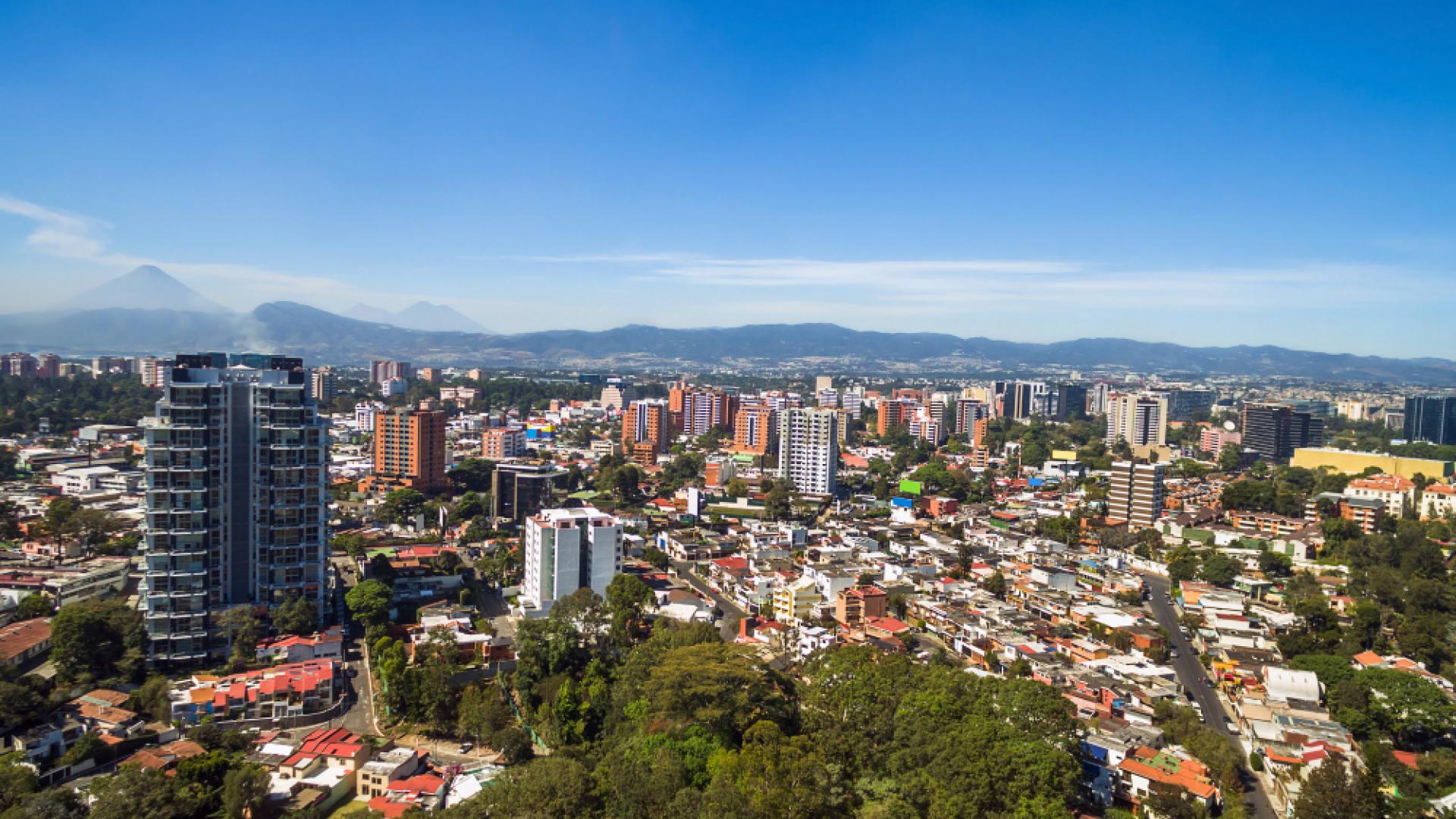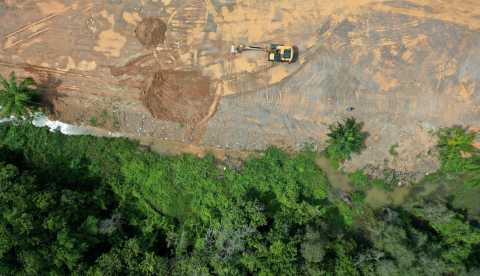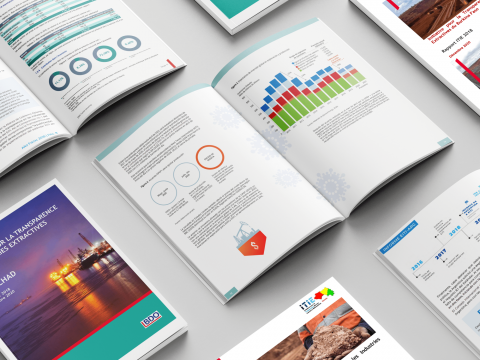
Guatemala
Overview and role of the EITI
Guatemala primarily exports lead, gold, silver, nickel, zinc and oil. The country has a relatively small extractive sector, which contributed 0.8% of the national GDP in 2020. Mining activity has decreased over the past years due to closures and temporary suspensions of several mines, which resulted in a downturn in mineral exports. Oil exports have consistently diminished since 2017, going from 2.9 million barrels per year to 1.1 in 2021.
Guatemala’s mining sector has been the source of several social conflicts, some resulting in judicial claims and bills submitted in the National Congress. In 2017, the Supreme Court suspended the license to operate to one of the largest mines, San Rafael. EITI reporting has listed several bills aiming to reform the extractive sector, including a moratorium in mining and hydroelectrical operations.
Guatemala joined the EITI with the aim to improve public understanding of extractive sector management and to support capacity building for members of the EITI multi-stakeholder group. Opportunities remain for the EITI platform to be used to inform public debate and reform on matters of public interest that pertain to how the sector is managed and benefits communities.
In September 2023, the EITI International Secretariat conducted a high-level mission to strengthen EITI Implementation in Guatemala. Key priorities included strengthening the legal framework, disclosing social and environmental information, and enhancing Free, Prior, and Informed Consent procedures to mitigate social and environmental conflicts have been identified to strengthen good governance in the extractive sector of Guatemala. Guatemala is currently suspended due to the limited progress in the implementation of the EITI Standard.
Economic contribution of the extractive industries
- 1.2%
- to exports
- 0.8%
- to GDP
Beneficial ownership transparency: An urgent agenda in Latin America and the Caribbean

EITI Debate: What's the deal? Contract transparency in Latin America and the Caribbean

Debunking the security myth in beneficial ownership transparency

Pioneering new approaches to EITI reporting
Innovations and policy reforms
- In December 2021, Guatemala published a two-year flexible EITI Report, covering fiscal years 2019 and 2020.
- A 2017 report, published with the support of GIZ, outlines opportunities for collaboration between EITI Guatemala and EITI Perú to strengthen the impact of EITI implementation in both countries.
- In 2016, a group of civil society organisations published a study on the contribution of Guatemala’s mining sector to development.
The EITI is a highly relevant initiative for the country, due to its nature and objectives. Its implementation allows stakeholders to learn about the strengths, opportunities, weaknesses and risks of the industry, to dialogue and reach consensus, and to generate public policy based on this information.
Extractive sector data
Production and exports
Revenue collection
Revenue distribution
Top paying companies
Extractive sector management
Tax and legal framework
Guatemala’s mining sector is governed by the Mining Law and its Regulations, while the oil and gas sector is governed by the Hydrocarbons Law and its Regulations. Both sectors are regulated by the Ministry of Energy and Mines (MEM). The General Mining Directorate oversees the development of the mining industry, while the General Hydrocarbon Directorate oversees the hydrocarbon sector. The legal frameworks and supporting legislation for the mining and oil and gas sectors are listed on the government’s website.
The tax framework for the extractive sector consists of royalties, private funds and taxes, such as corporate income tax. Taxes are collected by Guatemala’s tax administration, SAT, and royalties are collected by the Ministry of Energy and Mines.
Licenses and contracts
Hydrocarbons contracts are awarded by public bidding and direct negotiation in the form of services contracts, operation contracts and production sharing contracts (PSCs), and are approved by the President of the Republic and the Cabinet. These are published in the official diary as governmental agreements.
Mining prospecting, exploration and exploitation licenses are awarded by the General Mining Directorate under the Ministry of Energy and Mines. Applications must include an environmental mitigation or impact assessment. Mining licenses are listed in Guatemala’s EITI Reports and on the Ministry of Energy and Mines’ website.
Beneficial ownership
Guatemala does not have a legal framework mandating the disclosure of beneficial ownership and does not disclose information in its government systems or EITI reporting.
Revenue distribution
Revenues collected from mining companies are allocated to the national treasury, while those from the oil and gas sector are allocated to the national treasury and the national development fund, FONPETROL, in accordance with Decree 71-2008. FONPETROL, in turn, allocates a share of revenues to departments and municipalities in accordance with an applicable legal formula.
EITI implementation
Governance
EITI-Guatemala is administered by the Guatemala Multi-Stakeholder Group (MSG), also known as the Comision Nacional. The MSG is hosted by the Ministry of Energy and Mines and chaired by the Vice President of Guatemala.
Timeline
Government announces commitment to join the EITI
Candidature application is submitted
Guatemala joined
Multi-stakeholder group is formed
2010-2011 EITI Report published
Report
Designated Compliant country
Validation report
2012-2013 EITI Report published
Report
2014-2015 EITI Report published
Report
2016-2017 EITI Report published
Report
Validation; suspended for lack of progress
Board decision
2018-2020 EITI Report Published
Report
Validation
Guatemala was found to have made inadequate progress in implementing the 2016 EITI Standard in January 2020, following its first Validation. The Validation identified 18 corrective actions to be addressed by the country’s next Validation. Currently, the EITI International Secretariat has postponed the next Validation due to political instability.





